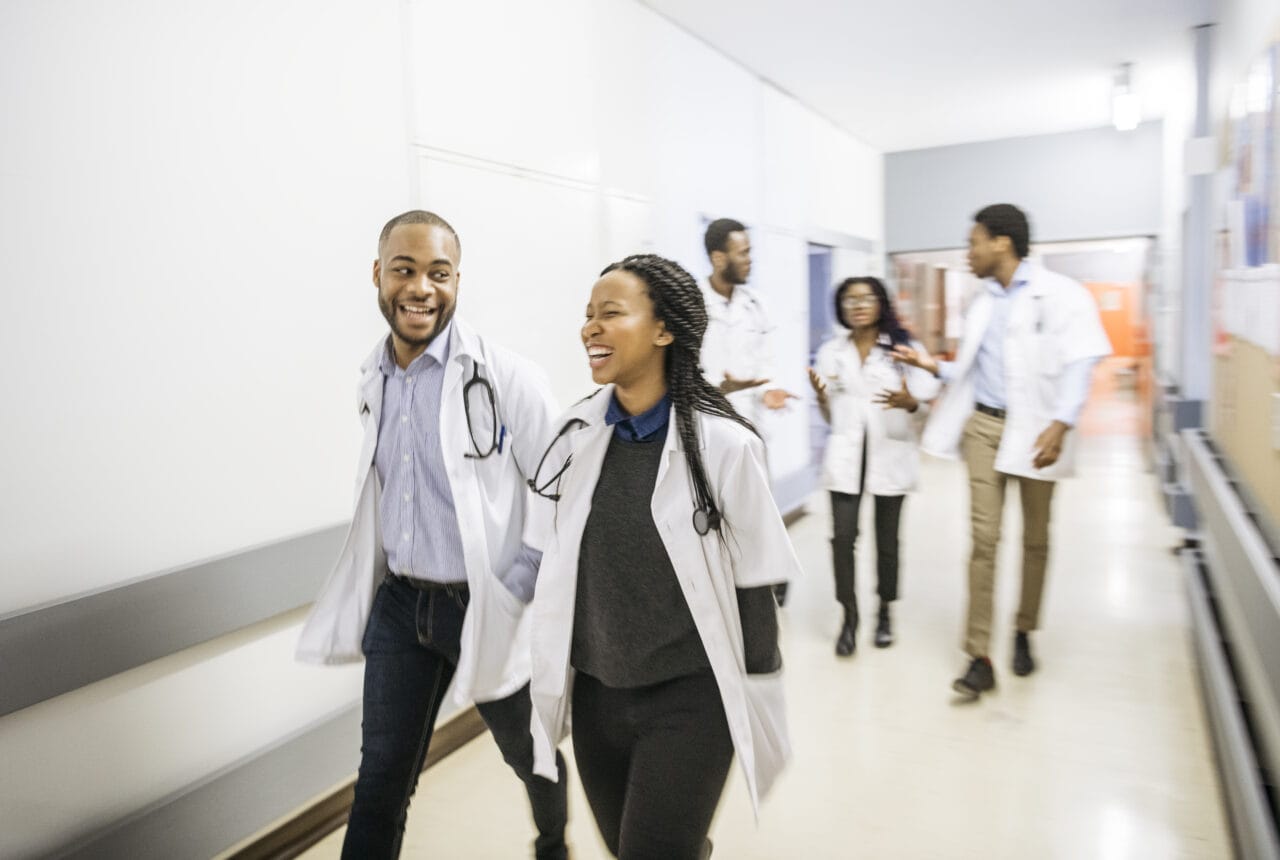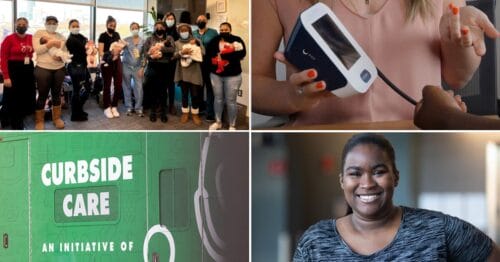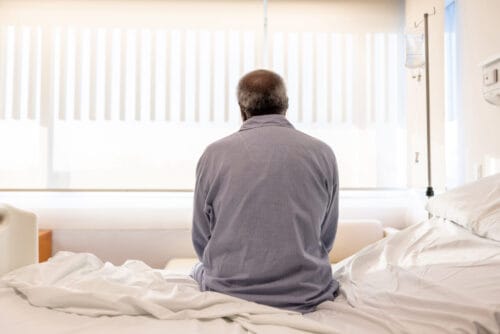Building a Pipeline to Medical Careers for HBCU Students
October 31, 2024

Getty Images
Two partnerships are working to build a more diverse doctor workforce by providing opportunities and specialized training to underrepresented students.
Diversity among medical school enrollees continues to grow, but demographic data still show low enrollment for some racial and ethnic groups. For the 2022–2023 academic year, Black or African American matriculants made up 10% of first-year medical school students; students of Hispanic, Latino/a or Spanish origin made up 12%; and American Indian or Alaska native students made up 1%.
Students from underrepresented racial groups also face a higher risk of not finishing, says Ebonie Woolcock, MD, MPH, a former obstetrician-gynecologist at Boston Medical Center (BMC) and assistant professor at Boston University (BU)’s Chobanian and Avedisian School of Medicine, who now is Associate Dean of Student Affairs and Admissions at Meharry Medical College.
“Although attrition rates are very low in medical school,” Woolcock says, “they tend to be the students that come from low socioeconomic backgrounds. They tend to be students that come from underrepresented backgrounds, specifically Black students.”
Woolcock directed the BU medical school’s Early Medical School Selection Program (EMSSP), an initiative operating for more than four decades to help a racially diverse set of undergraduate students prepare for and thrive in medical school.
How EMSSP helps undergraduates prepare for medical school
Students in the EMSSP come to Boston in the summers after their sophomore and junior years for science coursework and study skills training, and their senior academic year is spent entirely at BU. EMSSP is an early assurance program, so if participants meet certain criteria, including minimum GPA and MCAT scores, they are automatically offered admission to BU’s Chobanian and Avedisian School of Medicine. Not only does this usher them into an institution where they already have a relationship, it can reduce the stress, time, and cost of the typical medical school application process.
Developed in 1982 as a partnership specifically with historically Black colleges and universities, (HBCUs), EMSSP has expanded beyond to include 14 colleges, including some that serve large numbers of Latino/a or Pacific Island students. The most recent addition is a local one: University of Massachusetts Lowell, which draws a racially and socio-economically diverse student body.
“This program really aligns with BMC’s mission and a longer-term vision about making sure that we’re reflecting the populations that we serve”
Glory ruiz, bmc’s director of public health
“Medical school is very, very hard, especially if you come from an underrepresented background. The imposter syndrome is real,” says Woolcock, who is an EMSSP alum herself. “Having support from a program that understands that your background may be very different from a lot of others who are entering medical school—that helps you navigate.”
Woolcock has built a tiered mentoring program, linking undergrads with medical students at all levels.
“No matter where you are on the continuum, you get mentoring from someone above you. And then you’re also going to mentor those below you, to be able to continue to give back,” she explains. “Even if you are a shy student that doesn’t know how to reach out, you automatically get this mentoring group that you’re going to be a part of.”
Today, there are 217 EMSSP alumni, “217 physicians who have come through the program that are out in the world doing great things,” Woolcock says.
Participants don’t necessarily stay in Boston. “A lot of the students are from places where they have limited access to medicine, and their dream is to be able to go back home,” she says. “They’re filling needs wherever they’re from, sometimes serving their own neighborhoods.”
Training opportunities for HBCU medical school students
In another local initiative— this one for students already in medical school — BMC has teamed up with a community health center on a program to bring students from HBCU medical schools to Boston for six weeks of paid training in obstetrics and gynecology, sexual health and sexually transmitted diseases, and social determinants of health.
Launched in 2023, the HBCU Medical Student Internship Program is the brainchild of Jonathan Pincus, MD, a clinical instructor at BMC and medical director of internal medicine and HIV Services at Codman Square Health Center, which serves an economically, racially, and linguistically diverse patient population in Boston’s Dorchester neighborhood.
“Dr. Pincus considered the long history of discrimination against HBCUs, and some of the issues that their students face. A lot of these schools have been traditionally underfunded, and the students have less connections,” says Christine Leccese, MPH, the health center’s director of communications. “He hoped that creating a link between some of these HBCUs and Boston would enable us to recruit more providers of color where they’re greatly needed, and also provide this important education and experience for HBCU students.”
Last year’s inaugural internship cohort comprised three Black women medical students from Howard University. While in Boston, the students shadowed clinicians at BMC and the community health center and received hands-on training on medical procedures, attended mentoring sessions, and learned about health-focused community organizations. They attended a day-long Haitian Health Conference and heard from expert speakers on such topics as LGBTQ legal issues, HIV prevention, racial disparities in maternal health, and techniques for taking a patient’s sexual history.
This summer, the team welcomed the 2024 interns to Boston and continued to hone the program, which drew unanimous positive reviews from last year’s cohort.
Glory Ruiz, MD, BMC’s director of public health, was part of the team organizing the internship. She says they wanted to expose the visiting students to as many facets of care as possible. Ruiz says the internship offers students “the whole BMC experience, in terms of the continuum of care.” The program included the Emergency Department; Project TRUST, BMC’s harm-reduction-focused drop-in center; OB/GYN; and the STD and HIV clinics.
“This program really aligns with BMC’s mission and a longer-term vision about making sure that we’re reflecting the populations that we serve, and that we are opening our horizons to people not from here, not our traditional partners,” says Ruiz. “This is how we rewrite healthcare—thinking outside the box, going beyond our usual partners, partnering with people in the community, the Dr. Pincuses and community health centers of the world, the Howard Universities, and schools that we’ve never partnered with before.”


